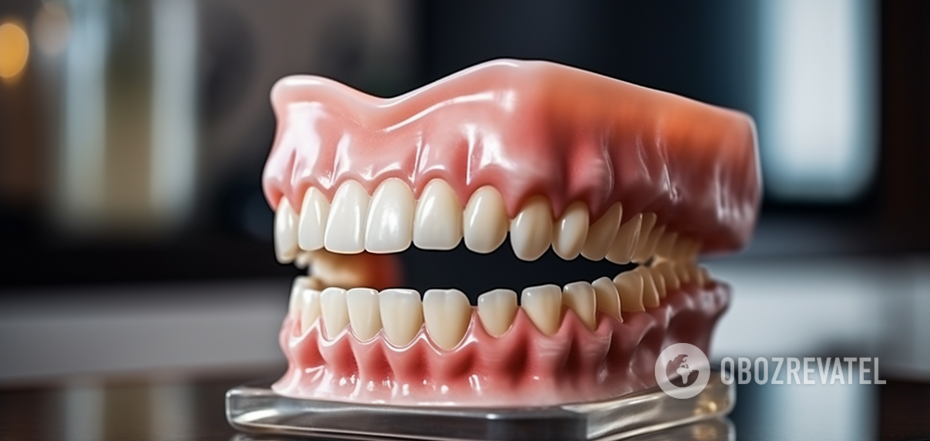Life
Why we dream about teeth falling out: scientists have found a scientific explanation
Sleep and dream researchers have long noticed that people often have dreams with the same plot. One of these plots is tooth loss. We often dream about losing this part of our body, and it makes us wake up in terror.
Two Israeli psychologists, Naama Rosen and Nirit Soffer-Dudek, decided to study this phenomenon, PsyPost writes. And they found a connection between such dreams and dental irritation. The scientists published the results of their work in the journal Frontiers in Psychology.
Earlier studies have shown that about 39% of respondents have had dreams about teeth falling out, breaking, or rotting at least once in their lives. Over the years, these visions have been interpreted in different ways, ranging from common symbolism to the effects of stress. In some cultures, such dreams are considered prophetic and foretell the death of someone close to them. In others, such visions are associated with the fear of old age and sexual behavior.
"I found it very mysterious that one of the most common dreams (of teeth falling out) depicted an experience that rarely describes the experience of adults in real life," explained Soffer-Dudek, director of the Center for Consciousness and Psychopathology at Ben-Gurion University of the Negev. Together with her colleague, she concluded that dreams about teeth are not subject to the principle of dream continuity. This principle explains dreams by the fact that we see things in them that bother us when we are awake. So the researchers started looking for other reasons.
Their work, which is part of a larger study of dissociation and related constructs, involved 210 people. Most of them were college students aged 18 to 28. They completed questionnaires to assess various factors, including dream themes, psychological stress, tooth irritation, and sleep quality. Of particular interest were two aspects of dental irritation - nighttime teeth grinding and the feeling of tension and pain in the teeth upon waking.
The researchers used the Dream Motif Scale (DMS). It consists of 100 dream themes, measured on a 5-point scale, and assesses the frequency of recurrence of certain themes in a dream throughout a person's life. They focused on four items, including one related to dreams about teeth. To measure psychological stress, the researchers used the Brief Symptom Inventory (BSI), which assesses the symptoms experienced by the study participant in the past month.
In addition, they used the Pittsburgh Sleep Quality Index (PSQI), which assesses how well or poorly a person has slept in the past month. Study participants were also asked to report on what dental symptoms they experienced when they woke up.
As a result, it turned out that there was a significant relationship between dreams about teeth and dental irritation. It was especially evident in the feeling of tension in the teeth upon waking. This means that people who dreamt that their teeth were falling out were more likely to report sensitivity or tension in their teeth, gums, or jaws when they woke up.
Thus, the authors of the study linked dreams not only to psychological processes but also to certain physical sensations. Thus, dreams about tooth loss correlate with a feeling of discomfort in the mouth in the morning.
Interestingly, this correlation was not observed with teeth grinding, although this is usually associated with tooth irritation. The researchers suggested that this may be due to the fact that people do not realize that they may be grinding their teeth in their sleep. Instead, they often experience certain dental symptoms after waking up.
Moreover, the study showed that dreams about teeth are not related to psychological stress or sleep quality. Thus, the researchers managed to refute the earlier idea that such dreams are primarily caused by psychological problems. "I thought we would find a stronger correlation between dreams about tooth loss and psychological stress," Soffer-Dudek said.
The Israeli researchers' discovery challenges the traditional notion that dreams of tooth loss are symbolic of psychological distress. Instead, the study suggests that these dreams may have a physical basis, rather than being purely symbolic psychological symptoms.
However, it should be noted that this study has certain limitations. In particular, the sample included mainly college students, which means that correlations may differ among other groups of people. In addition, the assessment of tooth irritation was based on the subjective feelings of the subjects, which may not always be completely accurate. Therefore, the work of Rosen and Soffer-Dudek requires repeated experiments and additional verification on a larger sample. Scientists can also study other physical sensations, such as sore gums, toothache, or even dental procedures performed the day before, to better understand the relationship between dream themes and physical discomfort during sleep.
Earlier, OBOZ.UA told you what nightmares people most often dream about and why it happens.
Subscribe to the OBOZ.UA channels on Telegram and Viber to keep up with the latest events.



























